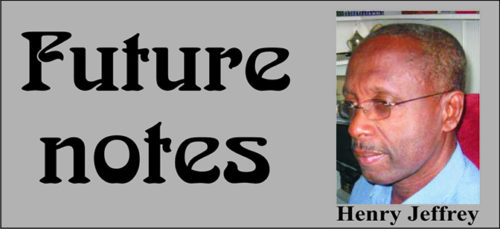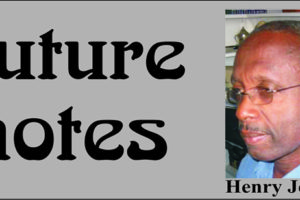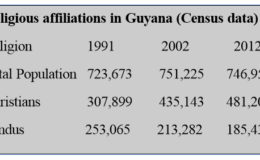
Donald’s truth
In ‘Under the PPP/C Guyana had the fastest growing economy in the region’ (SN: 22/05/2017), former president Donald Ramotar presented some isolated truths, but the story he wove around them was essentially false.

In ‘Under the PPP/C Guyana had the fastest growing economy in the region’ (SN: 22/05/2017), former president Donald Ramotar presented some isolated truths, but the story he wove around them was essentially false.

The recently completed Draft Strategic Plan for Social Cohesion in Guyana, 2017-2021 (SP) (http://www.motp.gov.gy/images/documents/draft_social_cohesion_strategis_plan_2017_2021.pdf),
Recently, the Government of Guyana, i.e. the Ministry of Public Health, announced that in collaboration with the Ministry of Social Protection and the Pan American Health Organisation (PAHO) it was in the process of devising a strategic plan to deal with the condition of the elderly.
Contrary to what Dr. David Hinds says, none of our pre- or post-independence governments has been in an ethnic trap of any sort (Guyana Chronicle 23/04/2017; Guyana Chronicle .30/04/2017).
No sooner had President David Granger, in his address to the Fourth Annual State of the African Guyanese Forum at the Critchlow Labour College in August 2016, declared that his government intended to ‘establish a Lands Commission in order to rectify the anomalies and resolve the controversies which, up to now surround thousands of hectares of communal lands which were purchased in the post-Emancipation Village Movement,’ the Indian Action Committee (IAC) was on his case.
Given its historical development and situational context, outside of pure formalism (an emphasis on form rather than content), to which this regime appears particularly prone, there are no good logical, historical, political, economic, social or other reasons why it should have decided to couple the generally settled Amerindian land issue to the yet to be consensually formulated African demand for ancestral land.

‘Reasonable comprehensive doctrines, religious or non-religious, may be introduced in public political discussion at any time … provided that in due course proper political reasons – and not reasons given solely by comprehensive doctrines – are presented that are sufficient to support whatever the comprehensive doctrines are said to support’ (John Rawls.
Anyone concerned with the present perilous direction of climate change must hope that countries not only stick to the commitments they made under the UNFCCC 2015 process but if possible raise their ambitions.
As reported last week, the headmistress of Central High School, Ms.
Now that we have reached a hiatus in the confrontation between the Movement Against Parking Meters (MAPM) and the Mayor and City Council, it may be as good a time as any to attempt to determine what that confrontation represented in terms of some possible futures of the movement.
The discussion on the Ogle Housing Project (Prado 1) last week was intended to aid us in understanding the controversy over the Sparendaam Housing Project (Prado 2).
The sight of the PPP/C leadership traipsing to the headquarters of the Special Organised Crime Unit (SOCU) in relation to the Sparendaam Housing Project (Prado 2) has again raised the expectation, particularly among APNU+AFC supporters, that they are on the verge of some kind of reckoning for the massive corruption we have been made to understand existed under the PPP/C government.
Last Friday afternoon I attended the launch of Rudy Insanally’s The Guyanese culture: Fusion or Diffusion?
The APNU+AFC government does not have a strategic approach for dealing with the Private Sector Commission (PSC); thus its recent reactive response to the legitimate concerns expressed by that organisation in relation to the State Assets Recovery Agency (SARA) Bill, parking meter controversy, rule of law and economy have been highly propagandistic and unhelpful if one believes that the private sector is indeed the engine of growth.
Let me thank Mr. Clement Rohee for publicly engaging me on perhaps the most important question that has been on the political agenda of Guyana for the past 60 years: ‘how do we get to a government that can ensure the psychological and actual peace and prosperity for all of us[?]’
To paraphrase a now familiar adage, ‘if the AFC did not exist someone would have invented it’ for the simple reason that it suggests logical and historical/nostalgic ways out of the ethnic divide that still plagues this country.
The Alliance for Change (AFC) must be congratulated for conducting what appears to have been a most transparent, competitive and well executed leadership election.
Nearly six and a half decades after the PPP first came to government in 1953, with other hopeful junctures in 1964, 1992, 2011 and 2015, Guyana stands at another political crossroads and the outcome will again depend largely upon how the political elite and our diffracted civil society respond to the current difficulties.
‘Finally, we must think big and dream even bigger. In America, we understand that a nation is only living as long as it is striving.
Temptation to pay little attention to the inscrutability of the governing political elite in its dealings with the selection of a new chairperson for the Guyana Elections Commission gave way to concern as I came to realise that the situation may be somewhat more complicated and possibly detrimental to the body politic.
The ePaper edition, on the Web & in stores for Android, iPhone & iPad.
Included free with your web subscription. Learn more.